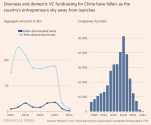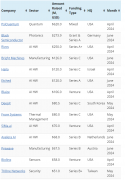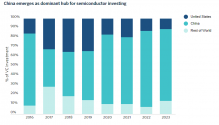Nope they don't. People here are very knowledgeable about industries but not the broader economy.
I agree with most points, however things have changed. During those years, Chinese investors had property as their major destination for investment, something that makes their wealth grow, and has direct effect on their sentiment.
The problem now is:
- With a richer China comes a need for more focus on wealth (and not economic) management. Hence, capital markets become more important.
- Due to property slump, capital markets become even more important.
- With the focus on internationalization of the RMB, capital markets become important as a way to invest RMB proceeds. Like if you are Saudi Arabia, where can you invest or park your RMB from oil sales? For USD, you have a pretty high interest govt bonds, decent returns on stock market, etc. etc.
Some points where I don't agree:
- Listed companies in the US don't necessarily need to give out dividends, it's a companies philosophy and many companies have made big without ever giving out dividends. Examples, Amazon, Berkshire Hathaway etc.
- There should be some pressure to get returns, otherwise it will lead to wasteful expenditure. Yes it can lead to short termism, so it has pros and cons.
The prerequisites for a mature, functioning capital market in a nation which seeks geopolitical independence, is the need for a nation to be developed in all manners of society, trust, culture, a sufficient lack of scarcity (aka per capital wealth), and to experience that for a sufficient duration of time, all with a bedrock of fundamental geopolitical industry and technology and military power to ensure they are a credible player that has their own chips to play on the world stage rather than operating on another actor's credit.
If one seeks a nation to have a functioning capital market which is not merely just a gambling den (as
@GiantPanda accurately describes in #32400, the Chinese capital market in the recent past but also including today), that is merely one of the many outcomes of having a couple of centuries of stable, potent and victorious geopolitical fruits where you are not on the receiving end of conflict, destruction of your own institutions and industries, etc.
=============
In the China specific case, the question about "what role should capital markets serve in China," and the overall question of "what characteristics and metrics should the Chinese economy be aiming towards each year" -- should really be subordinated to "what is first and foremost the geopolitical objectives of each year/five years/decade etc".
While capital markets and economic performance are vital in enabling industry, technology, society, and military power and advancement, correctly identifying which aspects of capital markets and which subdomains of economic performance are geopolitically important at this stage and which aspects have less relevant weighting, I think needs to be at the forefront of considering these questions.
If some domains of the economy are less vital and can be allowed to tick at an acceptable lower rate for a while to enable other reforms, actions or developments to occur or to advance, while the overall economic/geopolitical objectives can still be attained at a reasonable pace, then it is that balancing act which should be dissected and linked together.






